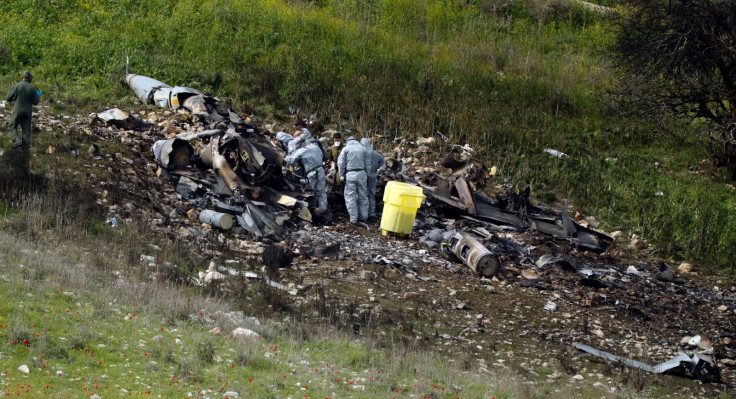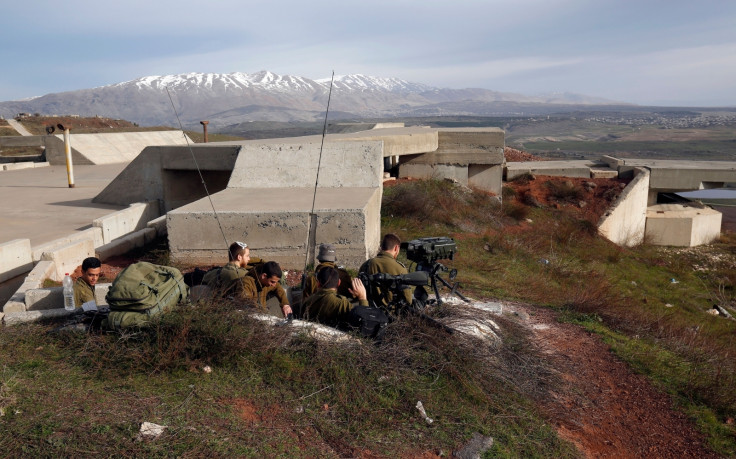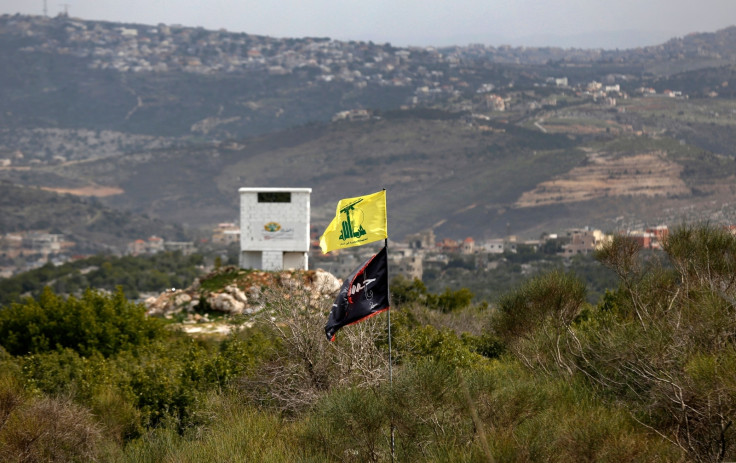Netanyahu vows to sustain Syria strikes despite risk of Israel-Iran conflict
KEY POINTS
- The Israeli prime minister was responding to the downing of an Israeli jet by Syrian forces.
- Netanyahu said Israel "landed hard blows on the forces of Iran and Syria".
Israeli Prime Minister Benjamin Netanyahu has promised to continue strikes in Syria despite the risk of sparking a conflict with Iran via its Syrian and Lebanese proxies.
After an Israeli F-16 was shot down during air strikes on Iranian targets on 10 February, Netanyahu told his weekly cabinet meeting: "Yesterday we landed hard blows on the forces of Iran and Syria. We made unequivocally clear to everyone that our modus operandi has not changed one bit.
"We will continue to do whatever is necessary to protect our sovereignty and our security."
The Israeli jet was shot down by Syrian anti-aircraft fire on its return from a bombing mission, crashing in northern Israel. Both pilots ejected, one of whom was severely injured and the other lightly injured.
This is the first time that an Israeli plane had been lost during strikes on Syria.
In response, Israel attacked another 12 targets in Syria, three of which were aerial defence batteries and four of which were Iranian positions, described in an Israel Defence Forces (IDF) statement as "part of Iran's military establishment in Syria".
The continued attacks, and Netanyahu's belligerent words, raise the risk of escalation in a region already in political and military turmoil.

As the Syrian Civil War nears its seventh year, Syrian President Bashar al-Assad has, with Russian, Iranian and Hezbollah support, been able to re-establish control over much of the country. Indebted to these forces for his victories and reliant on them for continued support, Iranian influence over his regime has continued to grow.
Financed in part by Iran and trained by its Islamic Revolutionary Guards Corps, the Shia Lebanese Hezbollah militia has been a constant presence alongside Syrian regime forces. The group dominates Lebanese politics, and is far better equipped and trained than the official Lebanese armed forces.
As such, Israel faces Iranian-backed forces on both its Lebanese and Syrian frontiers.

Israel has conducted around 100 strikes on Syrian positions during the course of the war, though it is officially a neutral country. The attacks have aimed to prevent weapons being delivered to Hezbollah and to undercut Iran's strategic gains in the country.
Israeli air strikes in Syria have exacerbated long-standing Israeli-Iranian hostility. Before the Israeli plane was shot down, the IDF reported that it destroyed an Iranian drone – launched from Syria – that had crossed into Israeli territory. It was in response that the strikes which led to the loss of the Israeli jet were launched. Tehran denied that any drone had been deployed.
Israeli-Lebanese tensions are also running high. The two countries are currently in dispute over natural gas field rights and Israel's plans for a new border wall. Add into the mix Hezbollah forces with several years of combat experience, weapons procurement and deeper cooperation with Iran, and a new conflict becomes a real possibility.
Hezbollah called the downing of the Israeli jet "the start of a new strategic phase", in which Israeli aerial domination would be challenged. Such a statement reflects how confident the group has become since the last Israeli-Lebanese conflict in 2006.
Israel launched that conflict to neuter Hezbollah's military power after a series of cross-border raids and rocket attacks by the group. The fighting lasted just over one month and cost thousands of lives.
Restoring deterrence
Jeff Martini, senior middle east researcher at the RAND Corporation, told IBTimes UK that the situation in Syria could prompt further Israeli action against regime and Iranian targets.
He explained, "Israel has multiple concerns in Syria. At the top are the proximity of Iranian personnel and Iranian-backed militias to Israel's borders and Iranian support to Hezbollah for the production of rockets and missiles that are capable of striking Israel.
"Israel sent a message with its 10 February strikes, but the underlying issues remain unresolved and could provoke further action. Moreover, because Israel lost a fighter jet in the operation, it may look for additional opportunities to strike or bypass Syria's air defenses to "restore deterrence" and demonstrate its capabilities in this realm."
Israel may well consider Hezbollah - stronger than ever after its Syrian experience - an unacceptable threat on its northern border. If it decides to try and cut Hezbollah down to size, a new operation could bring the IDF into direct contact with Iranian forces. From there, it is anyone's guess how the fighting might escalate.






















